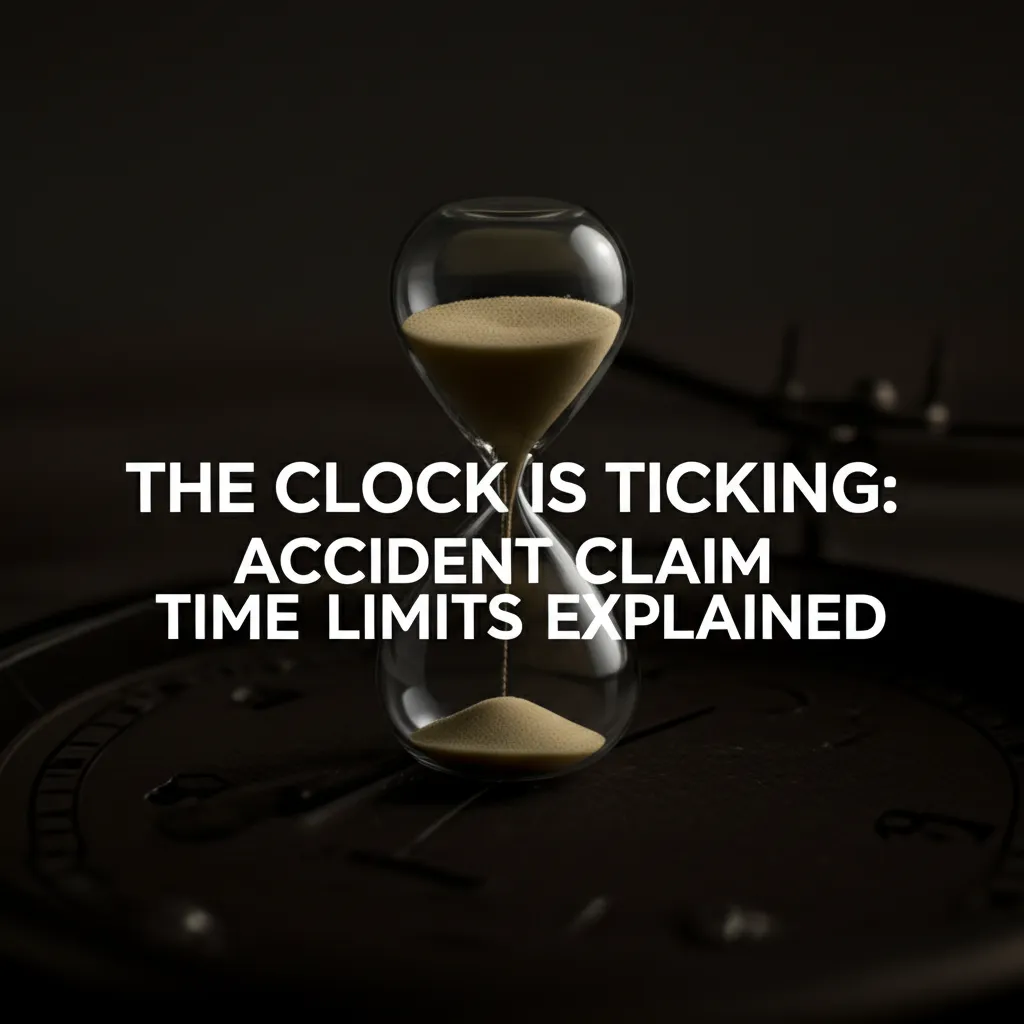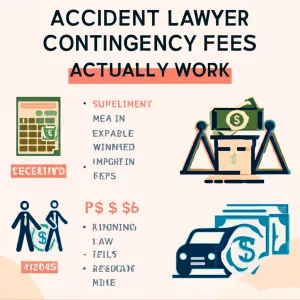The Clock Is Ticking: Accident Claim Time Limits Explained
- account_circle admin
- calendar_month Rab, 3 Sep 2025
- visibility 5
- comment 0 komentar

The Clock Is Ticking: Accident Claim Time Limits Explained
The Clock Is Ticking: Accident Claim Time Limits Explained
KlikBabel.com – The Clock Is Ticking: Accident Claim Time Limits Explained. Accidents happen. Whether it’s a car crash, a slip and fall, or a workplace injury, the aftermath can be overwhelming. Dealing with injuries, medical bills, and property damage is stressful enough, but understanding the legal landscape surrounding accident claims is crucial. One of the most critical aspects to grasp is the concept of statutes of limitations – the legally mandated time limits within which you must file a lawsuit after an accident. Missing these deadlines can permanently bar you from recovering compensation for your injuries and losses. This article will explain these time limits, their importance, and what you need to know to protect your rights.

The Clock Is Ticking: Accident Claim Time Limits Explained
Why Time Limits Exist: A Balancing Act
Statutes of limitations aren’t arbitrary. They exist to ensure fairness and prevent the deterioration of evidence. Over time, memories fade, witnesses relocate, and physical evidence degrades. The longer you wait to file a claim, the more difficult it becomes to accurately determine what happened and who is responsible. These time limits also encourage the prompt resolution of disputes, preventing legal claims from hanging over individuals and businesses indefinitely. The legal system favors timely action, discouraging negligence in pursuing claims.
Understanding the Statute of Limitations for Different Types of Accidents
The specific time limit for filing an accident claim varies depending on the type of accident and the jurisdiction (state or country) where it occurred. Here’s a general overview, but remember: this is not legal advice, and you should always consult with an attorney in your specific jurisdiction.
- Personal Injury (General): Most states have a statute of limitations of one to three years for personal injury claims. This includes accidents like car crashes, slip and falls, dog bites, and other incidents causing bodily harm. The clock typically starts ticking from the date of the accident.
- Car Accidents: While often falling under the general personal injury category, car accident claims may have specific variations. Some states have separate statutes of limitations for property damage related to a car accident (e.g., damage to your vehicle) versus bodily injury claims. It’s vital to check the specific laws in your state.
- Medical Malpractice: Medical malpractice claims often have shorter statutes of limitations than general personal injury cases, frequently one to two years. Additionally, the “discovery rule” may apply. This means the clock doesn’t start ticking until the injured party discovers (or reasonably should have discovered) that their injury was caused by medical negligence.
- Wrongful Death: Wrongful death claims, filed on behalf of a deceased person due to someone else’s negligence, also have their own statutes of limitations, generally similar to personal injury limits but calculated from the date of death.
- Product Liability: Claims involving defective products that cause injury also have statutes of limitations, typically aligned with personal injury laws. However, complexities arise depending on the type of product and the nature of the defect.
- Government Entities: Filing a claim against a government entity (city, state, federal) often involves even stricter and shorter deadlines. You may need to file a “notice of claim” within a very short timeframe (e.g., 30-90 days) before even filing a lawsuit. Failure to comply with these notice requirements can be fatal to your claim.
The “Discovery Rule” and Other Exceptions
As mentioned earlier, the “discovery rule” is a significant exception to the general rule of starting the clock on the date of the accident. This rule applies when the injury isn’t immediately apparent, as with some medical conditions or exposure to toxic substances. The statute of limitations may be “tolled” (paused) until the injured party discovers, or reasonably should have discovered, the injury and its connection to the negligent act.
Other potential exceptions to the statute of limitations may exist, such as:
- Minority (Under 18): The statute of limitations may be tolled for minors until they reach the age of majority.
- Mental Incapacity: If the injured party is mentally incapacitated, the statute of limitations may be tolled until they regain capacity.
- Fraudulent Concealment: If the at-fault party actively conceals their negligence, the statute of limitations may be tolled.
Why Seek Legal Counsel Immediately?
Given the complexities surrounding statutes of limitations and the potential for exceptions, it is crucial to consult with a qualified personal injury attorney as soon as possible after an accident. An attorney can:
- Determine the applicable statute of limitations in your specific case.
- Investigate the accident and gather evidence to support your claim.
- File a lawsuit before the deadline expires.
- Negotiate with insurance companies on your behalf.
- Represent you in court if necessary.
Waiting too long to seek legal advice can jeopardize your ability to recover compensation for your injuries and losses. Don’t let the clock run out on your rights.
Understanding the statute of limitations is a vital part of navigating the aftermath of an accident. Knowing your rights and acting promptly can significantly impact your ability to recover compensation for your injuries and losses. Seek legal counsel immediately to protect your interests and ensure you don’t miss crucial deadlines. The clock is ticking – don’t delay.
FAQ
1. What happens if I miss the statute of limitations deadline?
If you miss the deadline, the at-fault party can file a motion to dismiss your lawsuit. The court will likely grant this motion, meaning your case will be dismissed, and you will be barred from recovering any compensation.
2. Does filing a claim with an insurance company extend the statute of limitations?
No. Negotiating with an insurance company does not extend the statute of limitations. You must file a lawsuit within the legally mandated time frame, regardless of any ongoing negotiations.
3. How do I find out the specific statute of limitations in my state?
Consult with a personal injury attorney licensed in your state. They will be familiar with the specific laws and regulations in your jurisdiction. You can also research your state’s statutes online, but legal language can be complex, so professional advice is always recommended.
- Penulis: admin












Saat ini belum ada komentar